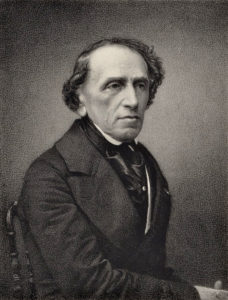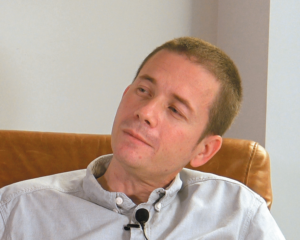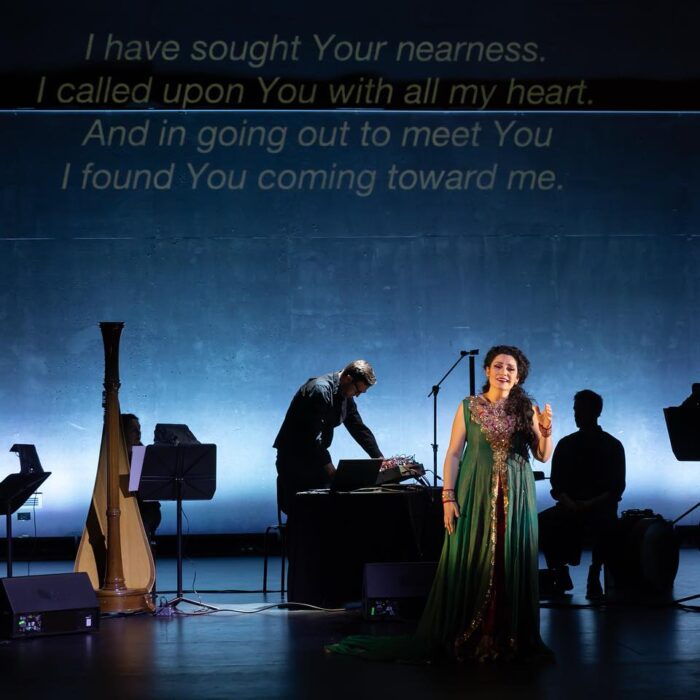
The Great Link – Giacomo Meyerbeer’s Operas Experiencing Major Renaissance At Deutsche Oper Berlin
By Dejan Vukosavljevic(Credit: Pierre Petit)
When Giacomo Meyerbeer died on May 2 in 1864 in Paris, he was one of the most performed composers of his time.
Among the surviving manuscript documents in the Meyerbeer archive in Berlin is to be found a prayer that Giacomo Meyerbeer wrote on 8 December 1863, a few months before his death:
“Great almighty God! … Preserve the five French operas that I composed in the repertoire of all the theaters in the world, for the rest of my life, and for another half century after my death.”
Alas, his prayers would not extend very far. Meyerbeer, despite his status as a giant of his time, never became a household name in opera companies for much of the late 20th century. In Berlin, where he was dubbed “the greatest Berlin composer,” the composer’s operas were performed sparsely.
But the largest Berlin’s opera house, Deutsche Oper Berlin, shares some special connection with the composer and in February and March of 2020, the company is set to feature three works by the composer.
A Historical Perspective
The first Meyerbeer’s opera that found its place on the stage of the Deutsche Oper Berlin (then Deutsches Opernhaus) was “Les Huguenots,” which premiered on January 29, 1918 in a production of Felix Lagenpusch. Lagenpusch also staged “Le prophète” with the premiere on February 10, 1920.
Seven years took place before Eberhard Müller staged “Le prophète” at the Städtisches Opernhaus (which was the name of the Deutsche Oper between 1925 and 1933) with the premiere on April 26, 1927. This performance was followed by a staging of “Vasco de Gama”/ “L’Africaine” that premiered on January 30, 1931 under the direction of Otto Krauß.
As the winds of a rising nationalism in Europe were blowing (that subsequently morphed into full winds of war) a big 20 year-long hiatus took over.
After World War II ended, the Deutsche Oper Berlin used the stage of the Theater des Westens for its performances, and it was there that director Julius Kapp staged “Vasco de Gama”/ “L’Africaine” starting on June 16, 1951.
During the 26-year period that followed, only two more stagings of Meyerbeer’s operas were arranged at the Deutsche Oper: “Le prophète,” which premiered in production by Bohumil Herlischka on April 6, 1966; and “Les Huguenots,” which was directed by John Dew and premiered on May 9, 1987. The latter production has also been recorded on a DVD in performance from 1991.
The Renaissance
After yet another long hiatus, the Deutsche Oper Berlin restarted the productions of Meyerbeer’s grand operas on October 1, 2014 with the concert performance of his “Dinorah” with the Philharmonie Berlin. Deutsche Oper Berlin Principal Chief Conductor Enrique Mazzola conducted the performance.
After one year, on October 4, 2015, a fully-staged presentation of “Vasco De Gama”/“L’Africaine” had its premiere at the Deutsche Oper Berlin, directed by Vera Nemirova. Mazzola led vast musical forces that included Roberto Alagna, Sophie Koch, Nino Machaidze, Markus Brück, Albert Pesendorfer and Seth Carico, among others.
The ensuing years, 2016-17 specifically, were the real renaissance for the famed composer and his grand opera in Berlin.
On November 13, 2016, a new production of “Les Huguenots” directed by David Alden premiered at the Deutsche Oper. Michele Mariotti and Ido Arad led a cast that included Siobhan Stagg, Patrizia Ciofi, Juan Diego Flórez, Yosep Kang, and Ante Jerkunica, among others.
Finally, Olivier Py staged “Le prophète” on November 26, 2017. Mazzola led the cast that included Gregory Kunde, Bruce Sledge, Clémentine Margaine, and Elena Tsallagova, among others.
At the center of this revival is conductor Enrique Mazzola, who has professed great passion for the composer’s legacy and work.
“Meyerbeer was the perfect immigrant. He went to Italy, and it is fascinating how quickly he adapted to his surroundings. In Paris as well: he wrote the best grand operas of his time, set standards and became a true Frenchman. Other composers did not have this adaptability,” the conductor explained in his article on the Deutsche Oper blog. “Giacomo Meyerbeer is like a teacher for me. I open up his scores with the utmost respect. I have to allocate my energy well to begin with his work, as it takes incredible concentration.”
(Editorial Note: Historical data provided courtesy of Deutsche Oper Berlin Press Office)
Categories
Special Features


